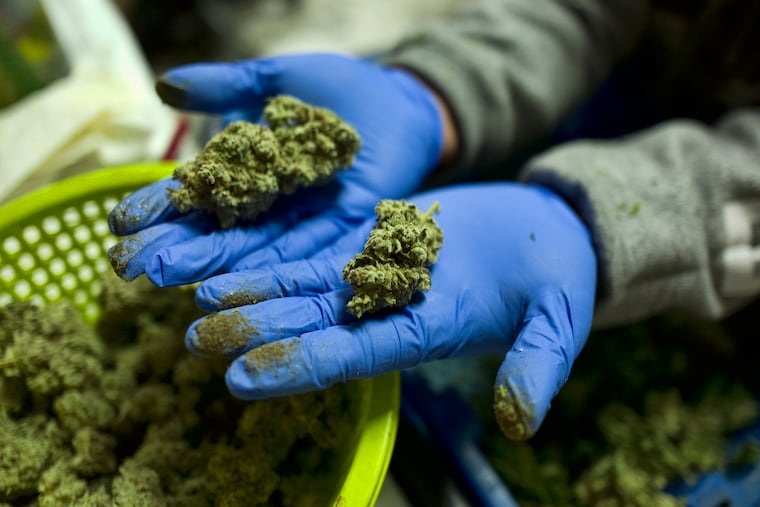Sojay Haze or Sour Tangie? Philly research seeks to find the best marijuana strain for pain.
The West Philly school is partnering with Releaf and several Pennsylvania marijuana dispensaries to determine if any strain is effective.

Increasingly, medical marijuana is being considered as an alternative treatment to manage chronic pain. But with so many strains of cannabis available at Pennsylvania dispensaries, which is the most effective?
A partnership between the University of the Sciences, regional marijuana retailers, and an app called Releaf eventually may provide an answer.
Nearly 70,000 patients across the nation are already using the free Releaf app, according to Tyler Dautrich, Releaf’s Philadelphia-based chief operating officer. These users anonymously report their experiences with different varieties of cannabis to treat various ailments.
In Pennsylvania, state residents who suffer from any one of 23 serious medical conditions are eligible to apply to become part of the state’s medical marijuana program and buy cannabis through state-approved dispensaries. Those conditions range from cancer to PTSD to anxiety and pain. Recommendations to use cannabis are written by a patient’s physician.
The USciences study will focus on pain, the condition that most patients report to their doctors when seeking a cannabis use recommendation.
Because cannabis remains illegal under federal law, double-blind placebo-controlled clinical trials are impossible to conduct. So researchers must rely on so-called observational studies to determine what works to alleviate symptoms — and what doesn’t. An observational study uses self-reported patient data.
A key provision of Pennsylvania’s medical marijuana law enshrines research within a provision of the state statute — known as Chapter 20 — by pairing major university health systems with marijuana companies. But those programs have yet to get off the ground.
The app makes a zippy end-run around these formal partnerships.
“Dispensaries utilizing this app for research are doing it voluntarily with pure motivation in advancing research,” said Chris Visco, president of TerraVida Holistic Centers, a chain of three cannabis providers in the Philadelphia suburbs that serves 25,000 patients. “We possess a great amount of data which could significantly accelerate this project.”
The app also solves a major problem facing dispensaries. By law, “budtenders” are prohibited in most states from making health claims about any cannabis product.
But they can use the experiences of other cannabis consumers to guide new patients.
“A dispensary can show a patient the top products that others have benefited from and say: ‘Here’s what’s working for other patients,'” Dautrich said.
Three dispensary chains with local operations have already signed on: TerraVida, Keystone Canna Remedies, and Curaleaf. Dispensaries in Maryland and Hawaii also are using data generated from the app, Dautrich said.
Keystone Canna Remedies’ founder said the app has been a boon to his dispensaries.
“It empowers patients to be both self-reflective and proactive in their cannabis use and data tracking,” said KCR’s Victor Guadagnino. “On a higher level, Releaf enables our dispensary staff to easily identify trends for which terpene profile, cannabinoid ratio, and dosage form is working best for a specific symptom or condition.”
For more cannabis, hemp, and medical marijuana news, go to Inquirer.com/cannabis